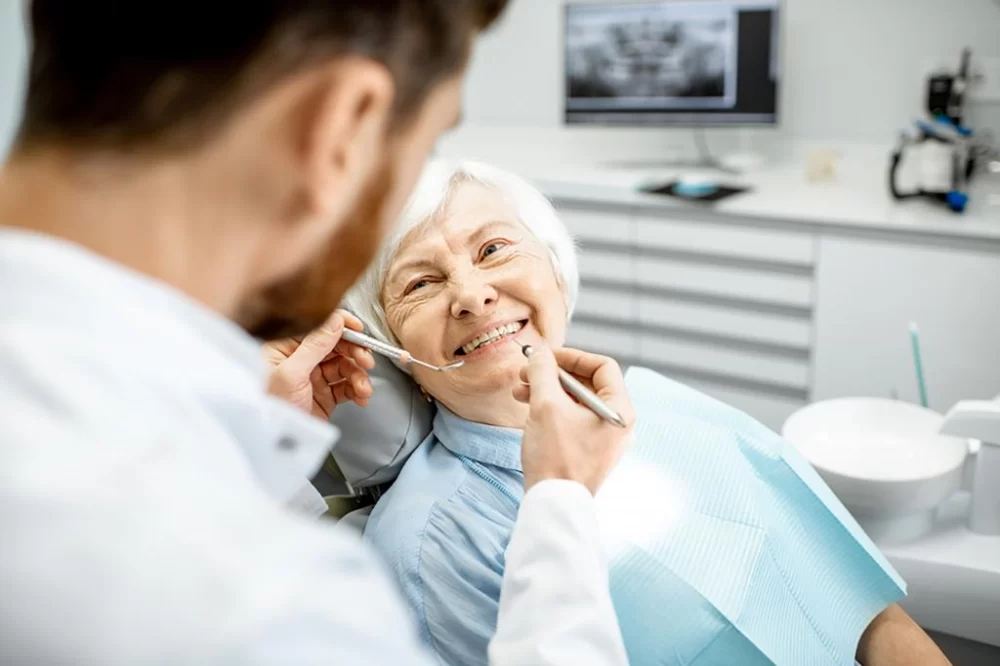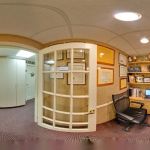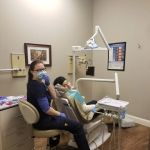
The Importance of Regular Dental Exams for Elderly Patients
As we age, taking care of our health becomes even more crucial. When I first started noticing some changes in my parents’ health, I realized how important it is to pay attention to every aspect, especially dental health. For elderly patients, regular dental exams are not just about keeping teeth clean—they play a vital role in preventing serious health problems that can affect quality of life. Over the years, I’ve seen firsthand how dental exams can make a difference in the lives of seniors, and I want to share why these exams are especially important for older adults.
Why Are Regular Dental Exams Essential for Seniors?
It’s easy to assume that dental care becomes less important as we get older, especially when many elderly individuals may have fewer natural teeth or rely on dentures. But this misconception can lead to severe consequences for overall health. Regular dental exams are essential for elderly patients for several reasons:
1. Detecting Oral Cancer Early
One of the most significant reasons for regular dental exams, especially for seniors, is to check for signs of oral cancer. A dental professional can detect early signs of oral cancer that might go unnoticed by the patient. I remember a time when my own grandmother, who was in her 70s, went for her regular dental checkup, and the dentist found an abnormal growth in her mouth. Thanks to the early detection, she was able to receive treatment promptly, which significantly improved her prognosis. Early diagnosis of oral cancer can increase survival rates, making dental visits critical for elderly patients.
2. Preventing Tooth Loss
For many elderly patients, tooth loss is a concern, whether due to decay, gum disease, or wear and tear over the years. Regular dental exams allow the dentist to check for signs of gum disease, which is one of the leading causes of tooth loss among seniors. My father, who neglected dental checkups for a few years, ended up losing several teeth due to untreated gum disease. If only he had kept up with regular visits, those teeth could have been saved with early intervention. Regular exams ensure that the dentist can spot issues early, provide the right treatments, and help maintain teeth for as long as possible.
3. Managing Chronic Conditions
Many elderly patients suffer from chronic conditions like diabetes or heart disease. What I’ve learned from my experience with older adults is that these health problems can have a direct impact on oral health. For instance, diabetics are more susceptible to gum disease, and untreated gum disease can worsen diabetes by making blood sugar levels harder to control. Regular dental exams are essential to manage these interconnected conditions. During a routine dental exam, the dentist can monitor the health of the gums and offer advice on how to manage oral health alongside chronic conditions.
4. Preserving Overall Health
It may seem surprising, but oral health is directly linked to overall health. Poor oral hygiene can lead to infections that can affect other parts of the body, such as the heart. I remember a family friend who ignored a tooth infection that eventually spread and caused serious health complications. Regular dental exams help prevent these infections by catching issues early and preventing them from becoming serious health threats. For seniors, these visits are crucial in maintaining overall well-being.
5. Maintaining Proper Nutrition
Eating a balanced diet becomes more challenging when oral health issues arise. Seniors who suffer from missing teeth, dentures that don’t fit properly, or gum problems may find it difficult to chew certain foods, which can lead to poor nutrition. Regular dental exams can help ensure that dentures are in good condition, that teeth are being properly cared for, and that any problems affecting eating habits are addressed promptly. I’ve seen how improving dental health has allowed seniors to eat more comfortably and maintain better nutrition.
What Happens During a Dental Exam for Seniors?
Dental exams for elderly patients are generally similar to those for younger adults but often include additional considerations due to age-related oral health issues. Here’s what you can expect during a typical exam for a senior patient:
1. Comprehensive Oral Health Assessment
The dentist will start by conducting a thorough examination of the teeth, gums, and mouth. They will check for signs of cavities, gum disease, oral cancer, and any other issues that may affect oral health. As I’ve seen with my elderly relatives, sometimes the dentist may even recommend X-rays to get a clearer picture of the teeth and bone structure, especially if there’s a concern about tooth decay beneath the surface or bone loss due to gum disease.
2. Checking for Signs of Dry Mouth
Dry mouth is a common problem for elderly patients, often caused by medications or natural aging. During a dental exam, the dentist will check for signs of dry mouth, which can lead to tooth decay and gum disease. If dry mouth is present, they may suggest remedies like saliva substitutes or other treatments to help manage the condition.
3. Discussion of Denture Care and Fit
For seniors with dentures, the dentist will check their fit and make sure they are not causing any irritation or damage to the gums. If dentures need adjusting, this will be done during the appointment. In my experience, my grandfather’s dentures became loose over time, causing discomfort when he ate. His regular dental visits allowed the dentist to adjust the fit and ensure he could chew food without discomfort.
How Often Should Seniors Visit the Dentist?
While many people believe that dental exams are only necessary once a year, seniors may need more frequent visits, depending on their oral health condition. I recommend every 6 months for most seniors, but it can vary based on individual needs. If a senior is dealing with chronic conditions or oral health problems like gum disease or tooth decay, the dentist may recommend more frequent visits to monitor and treat issues as they arise.
Ultimately, the frequency of visits should be determined in consultation with the dentist, as they will tailor the schedule based on the senior’s specific health conditions and oral health needs.
Conclusion: Prioritizing Dental Health in Elderly Patients
Taking care of your oral health as you age is just as important as managing other health concerns. Regular dental exams can help prevent serious issues, preserve quality of life, and maintain overall health in elderly patients. I’ve witnessed firsthand how a consistent dental care routine can improve seniors' health, comfort, and confidence. If you or a loved one is in need of expert dental care, visit our website to find trusted professionals who specialize in elderly dental care. Regular exams could be the key to maintaining good health and a beautiful smile for years to come.







 Colleen E. Nash, DDS0.0 (0 review)
Colleen E. Nash, DDS0.0 (0 review) Fidelity Dental Care - Dr. M. F. Karam DDS3.0 (23 review)
Fidelity Dental Care - Dr. M. F. Karam DDS3.0 (23 review) Simply Beautiful Smiles of Abington, PA4.0 (142 review)
Simply Beautiful Smiles of Abington, PA4.0 (142 review) Allan S. Mohr DDS, Smile Creations4.0 (237 review)
Allan S. Mohr DDS, Smile Creations4.0 (237 review) Dr. James M. Proctor, DDS4.0 (117 review)
Dr. James M. Proctor, DDS4.0 (117 review) Choice One Dental of Buford4.0 (390 review)
Choice One Dental of Buford4.0 (390 review) The Importance of Oral Health Education During Pregnancy for a Healthy Pregnancy
The Importance of Oral Health Education During Pregnancy for a Healthy Pregnancy Best Tips for Brushing Your Teeth Properly for Healthy Gums: Essential Techniques for Oral Health
Best Tips for Brushing Your Teeth Properly for Healthy Gums: Essential Techniques for Oral Health Why Skipping Dental Checkups Can Lead to Bigger Oral Health Problems
Why Skipping Dental Checkups Can Lead to Bigger Oral Health Problems Advantages of Porcelain Dental Restorations
Advantages of Porcelain Dental Restorations How Can Diabetes Cause Tooth and Gum Problems? Preventing and Managing Oral Health Issues
How Can Diabetes Cause Tooth and Gum Problems? Preventing and Managing Oral Health Issues Healthy Habits for Promoting Good Oral Health and Hygiene: Tips for a Healthy Smile
Healthy Habits for Promoting Good Oral Health and Hygiene: Tips for a Healthy Smile